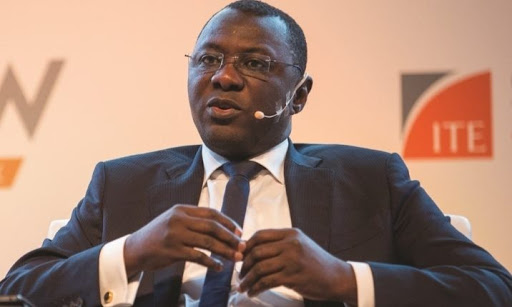IMF approves $360 million disbursement to Ghana amid strong economic reforms
The IMF’s support and the Ghanaian government’s commitment to economic reforms are critical to achieving sustainable growth and poverty reduction in the coming years.
- Advertisement -
The Executive Board of the International Monetary Fund (IMF) has completed its second review of Ghana’s $3 billion, 36-month Extended Credit Facility (ECF) Arrangement, paving the way for an immediate disbursement of approximately $360 million. This brings Ghana’s total disbursements under the arrangement to about $1.6 billion.
Ghana’s economic reform program is achieving its objectives, as the IMF-supported initiative has helped stabilize the country’s macroeconomic environment following severe economic and financial pressures in 2022. The programme has enabled the government to adjust macroeconomic policies and implement critical reforms to restore stability and debt sustainability while laying the groundwork for higher and more inclusive growth. Recent data shows that growth is more resilient than initially expected, inflation is declining rapidly, and fiscal and external positions are improving.
- Advertisement -
“Ghana’s performance under its ECF-supported reform programme has been generally strong,” said Kenji Okamura, IMF Deputy Managing Director. “The authorities’ strategy aimed at restoring macroeconomic stability and reducing debt vulnerabilities is paying off, with clear signs of stabilization emerging.”
- Advertisement -
The report highlighted that all quantitative performance criteria for the second review and nearly all indicative targets were met. The Ghanaian authorities have also made significant progress on key structural reform milestones, despite some delays. A crucial development has been the comprehensive debt restructuring efforts, which saw an agreement reached with Ghana’s Official Creditor Committee (OCC) under the G20’s Common Framework on a Memorandum of Understanding (MoU) for debt treatment. Additionally, there has been a recent agreement in principle with Eurobond holders on restructuring consistent with program parameters.
Ghana’s primary fiscal balance improved by over 4% of GDP last year. Looking forward, the authorities are committed to further fiscal consolidation, aiming for primary fiscal surpluses of 0.5% of GDP this year and 1.5% of GDP in 2025. These efforts are supported by reforms to boost revenue mobilization and streamline non-priority expenditures, while expanding social protection programs to mitigate the impact of fiscal adjustments on the most vulnerable populations.
The Bank of Ghana (BoG) has maintained a prudent monetary policy stance to sustain the rapid reduction in inflation and rebuild international reserves. The BoG has also taken steps to ensure financial sector stability, including implementing banks’ recapitalization plans, while the Ministry of Finance has begun recapitalizing state-owned banks.
- Advertisement -
“Looking ahead, perseverance in macroeconomic policy adjustment and reforms is essential to fully restore macroeconomic stability and debt sustainability, while fostering a sustainable increase in economic growth and poverty reduction,” Okamura added. “Greater focus on reforms aimed at private sector development is needed to foster inclusive growth and poverty reduction.”
The IMF emphasized the need for continued progress in improving tax administration, strengthening expenditure control and management of arrears, enhancing fiscal rules and institutions, and improving the management of state-owned enterprises, particularly in the energy and cocoa sectors. Bolstering targeted social protection programs is also necessary to cushion the vulnerable from the impact of fiscal adjustments.
As Ghana approaches the December 2024 general elections, the IMF stressed the importance of avoiding policy slippages and maintaining strong domestic revenue mobilization efforts. The country’s progress in economic reforms and fiscal consolidation is crucial for its long-term development and stability.
The IMF’s support and the Ghanaian government’s commitment to economic reforms are critical to achieving sustainable growth and poverty reduction in the coming years.
Source: Daily Mail GH
- Advertisement -


